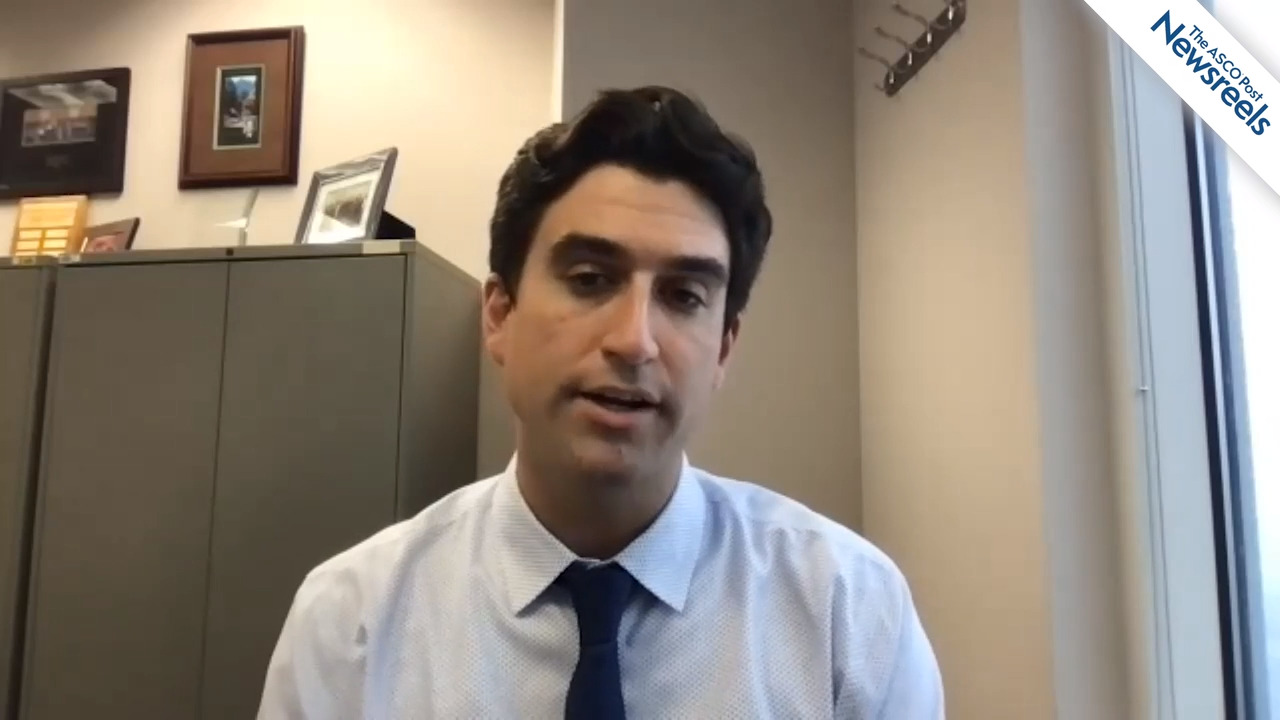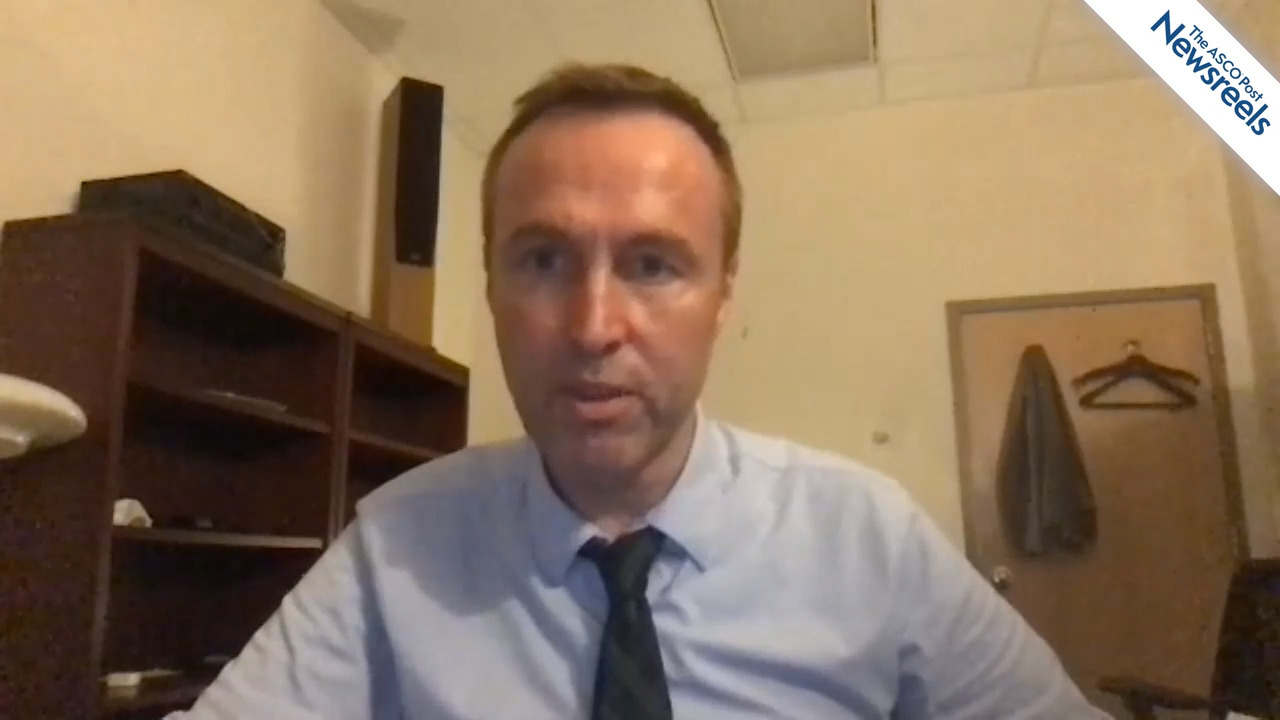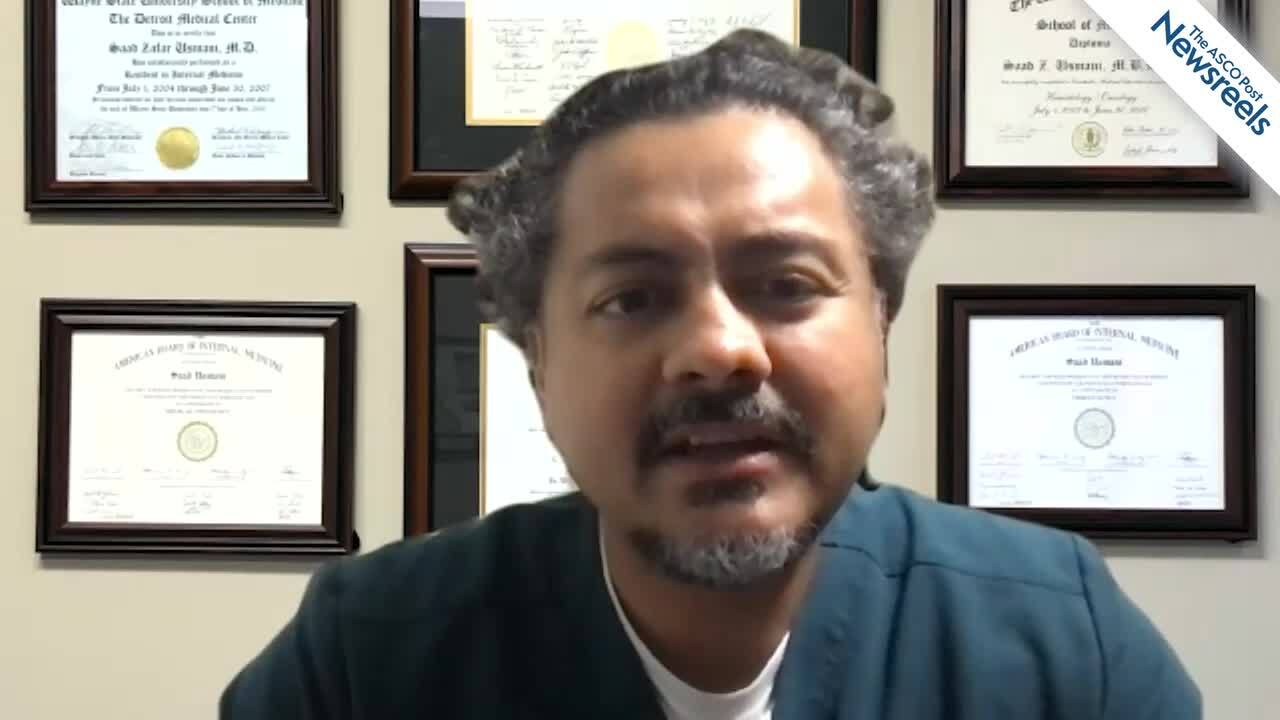Luis E. Aguirre, MD, on Chronic Myelomonocytic Leukemia: Keys to Assessment and Treatment
SOHO 2021
Luis E. Aguirre, MD, of the H. Lee Moffitt Cancer Center and Research Institute, discusses the subset of patients with chronic myelomonocytic leukemia who have a more indolent disease course. Features at diagnosis may include higher hemoglobin and platelet counts or JAK2, SF3B1, and IDH2 mutations; features associated with earlier initiation of treatment may include an elevated white blood cell count or a higher number of marrow blasts. Identifying the changes that occur between diagnosis and treatment are among future research goals (Abstract MDS-229).
The ASCO Post Staff
Curtis Lachowiez, MD, of The University of Texas MD Anderson Cancer Center, discusses data that show combining venetoclax with FLAG-IDA chemotherapy to treat patients with newly diagnosed acute myeloid leukemia led to minimal residual disease negativity in more than 90% of those achieving a composite complete response (Abstract AML-024).
The ASCO Post Staff
Kieron M. Dunleavy, MD, of Georgetown University, offers insights into the latest data on treating patients with primary mediastinal B-cell lymphoma: the optimal regimen; whether radiotherapy or stem cell transplants are needed; new information on the biology of the disease; novel agents such as CAR T-cell therapy and immune checkpoint inhibitors, and incorporating them into upfront treatment.
The ASCO Post Staff
Saad Z. Usmani, MBA, MD, of the Levine Cancer Institute, discusses new data on the CAR T-cell therapy ciltacabtagene autoleucel, a single infusion of which yielded early, deep, and durable responses in heavily pretreated patients with relapsed or refractory multiple myeloma (Oral Abstract MM-119).



